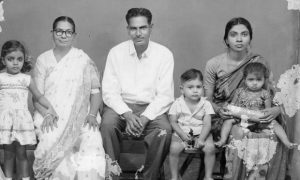Amit Chaudhuri in The Guardian:
 Not long ago, at a conference that brought together academics, writers and artists in Kochi in south India, the historian Vivek Dhareshwar unsettled his audience by saying that there was no such thing as caste – that it was a conceptual category the British used to understand and reduce India, which was internalised almost at once by Indians. “Caste” was not a translation of “jaati”, said Dhareshwar; “jaati” was a translation of “caste” – that is, the internalisation by Indians of the assumptions that the word caste involve meant they took its timelessness and authenticity for granted. Dhareshwar seemed to be implying – forcefully and outlandishly – that caste was at once a colonial inheritance and a habit of thinking, whose provenance no one felt the need to inquire into any longer. This was deeply nervous-making. For one thing, no doubt the predominantly upper-caste right – rigorously free-market Brahminical in tone even if not always in caste origin – would love such an argument as further support for its article of faith: that Hinduism is a wonderful religion, and any blemish it might have has been caused by outsiders or by colonial interference. It does seem a bit tendentious to attribute such inventive conceptual powers wholesale to the British. If Indians subscribe to invented versions of their culture, they must take responsibility and credit for having created a very large number themselves.
Not long ago, at a conference that brought together academics, writers and artists in Kochi in south India, the historian Vivek Dhareshwar unsettled his audience by saying that there was no such thing as caste – that it was a conceptual category the British used to understand and reduce India, which was internalised almost at once by Indians. “Caste” was not a translation of “jaati”, said Dhareshwar; “jaati” was a translation of “caste” – that is, the internalisation by Indians of the assumptions that the word caste involve meant they took its timelessness and authenticity for granted. Dhareshwar seemed to be implying – forcefully and outlandishly – that caste was at once a colonial inheritance and a habit of thinking, whose provenance no one felt the need to inquire into any longer. This was deeply nervous-making. For one thing, no doubt the predominantly upper-caste right – rigorously free-market Brahminical in tone even if not always in caste origin – would love such an argument as further support for its article of faith: that Hinduism is a wonderful religion, and any blemish it might have has been caused by outsiders or by colonial interference. It does seem a bit tendentious to attribute such inventive conceptual powers wholesale to the British. If Indians subscribe to invented versions of their culture, they must take responsibility and credit for having created a very large number themselves.
Caste has been the author of such violence in India – people were dying of caste-based violence even as we sat and listened to Dhareshwar in that hotel – that to deny its existence would have seemed like denying the Holocaust. This violence continues despite the fact that “untouchables, backward and scheduled castes, and scheduled tribes” form the majority of India’s population.
